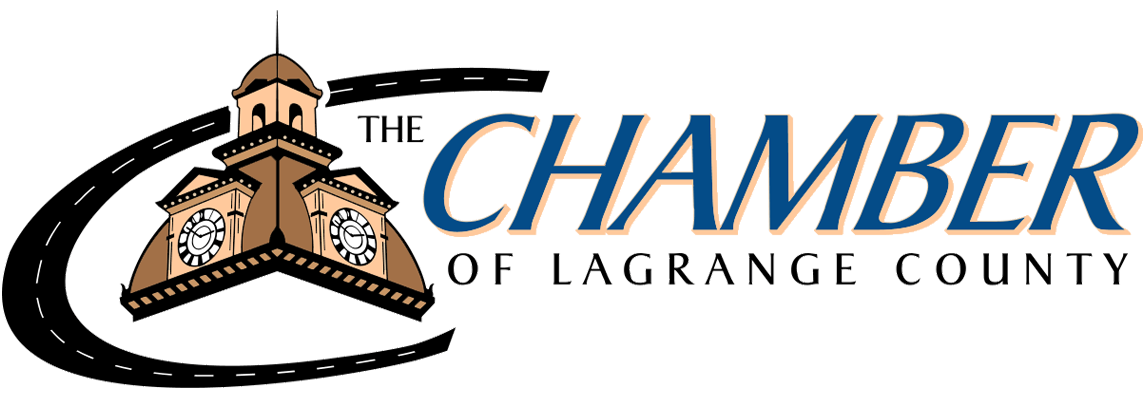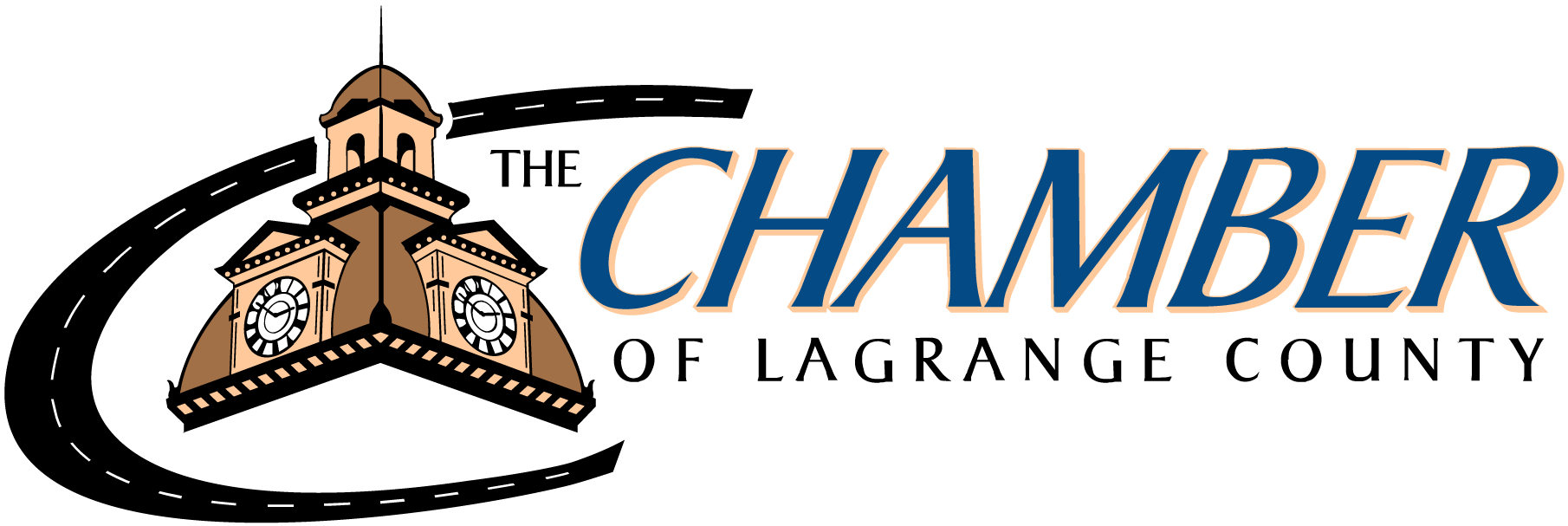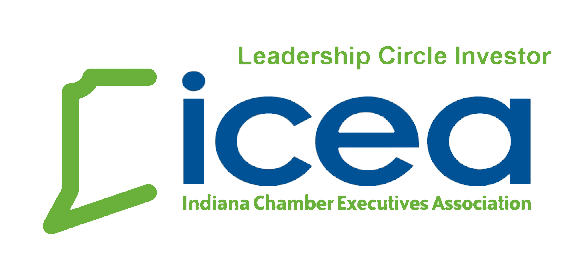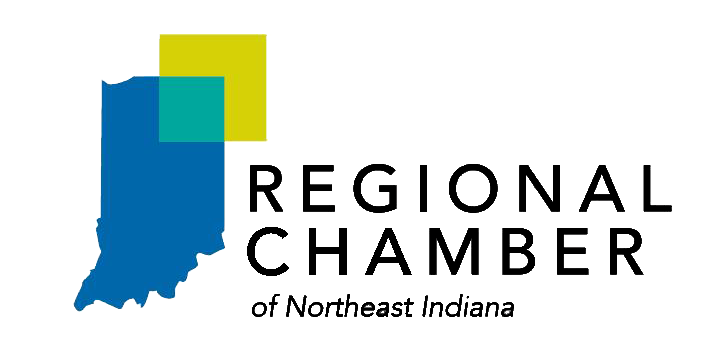By Regional Chamber of Northeast Indiana
•
May 5, 2025
End of Session Update 2025 Legislative Session The General Assembly concluded the 2025 Legislative Session in the early morning hours of Friday, April 25 th . Many key issues were addressed by legislators this session – all of which will now head to Governor Braun’s desk for final approval before becoming law. Most legislation will have an effective date of July 1 st . In the legislative session, the House introduced 708 bills, with 143 passing both chambers and 140 sent to the governor, reflecting a pass rate of 20%. The Senate introduced 521 bills, 110 of which passed both chambers and 104 were sent to the governor, also with a pass rate of 20%. You can follow along with Governor Braun’s Bill Watch Page to see when bills make their way to Governor Braun’s desk and are signed. Below are the highlights for the 2025 legislative session: The Budget Despite being the last bill passed this session, HEA 1001, State Budget (Rep. Jeff Thompson, R-Lizton) was a top priority for all members of the General Assembly. The Indiana Constitution requires the General Assembly to pass a balanced budget every two years, with this biennium’s totaling around $45 billion. This year, the budget process was complicated by the April 16 th revenue forecast which showed the state at a projected shortfall of around $2.4 billion over the next 3 years. Following this announcement, fiscal leaders from both caucuses, along with Governor Braun, met and shortly thereafter unveiled the final version of Indiana’s next biennial budget (presentation linked here ). Governor Braun’s proposed 5% budget cuts from his budget have been expanded across additional state agencies, with several being asked to cut even more. The Indiana Economic Development Corporation (IEDC) is among the hardest hit, with a projected 25–30% reduction in its operational and administrative funding. To bridge the funding gap, a $2 per pack increase to the cigarette tax, along with similar hikes on other tobacco products was included in the budget. This is expected to raise about $800 million over the biennium. All revenue from these increases will be dedicated solely to funding Medicaid. The budget funds all of Indiana’s current Medicaid obligations. Additionally, the state’s public health funding has been reduced from $100 million down to the $30–40 million range. However, funding was increased for the Family and Social Services Administration (FSSA), Department of Corrections (DOC), and Department of Child Services (DCS). The additional dollars will be pooled into a discretionary fund, which the governor can draw from as needed throughout the biennium to meet the most pressing needs from among those three agencies. Also in the budget is a $65 million increase in K–12 education funding, as well as fully funded universal school choice, which was a main budget priority for House Republicans and Governor Braun. The catch with universal school choice is that due to the tight budget forecast it will not take effect until the second fiscal year (2027). In a press conference Sen. Ryan Mishler (R-Mishawaka) noted that under the new budget and with the effects of SEA 1 , local governments are projected to experience stronger revenue growth than the state government, with local growth at 1.6% in FY26 and 1.7% in FY27. The House voted to pass the conference committee report on the budget with a 66-27 vote, while the Senate voted to pass the amended budget with a 39-11 vote. Property Tax Reform SEA 1, Local government finance , (Sen. Travis Holdman, R-Markle) overhauls Indiana’s property tax and local income tax systems by capping levy tax growth, phasing out certain deductions in favor of credits, and introducing property tax deferral programs while requiring more public accountability for tax increases. It raises the local income tax expenditure limits starting in 2028, shifts tax authority to county fiscal bodies, phases in new requirements for school corporations to share operating referendum revenues with charter schools and mandates the development of a property tax transparency portal. This legislation also dissolves the Union School Corporation, limits bond issuances by the Northern Indiana Commuter Transportation District and sets caps on fire protection territory tax rates. SEA 1 was passed by both chambers and received signatures by both Lieutenant Governor Beckwith and Governor Braun later that same day on April 15 th . HEA 1427, Department of local government finance , (Rep. Craig Snow, R-Warsaw) increases the cost threshold for when the Department of Natural Resources can use its own workers for projects. The bill allows the State to sell bonds through negotiation and grants the ability for several counties to raise local food, beverage, and innkeeper taxes, with new rules that ensure that these funds are properly reported and managed. HEA 1427 also added flexibility for partnerships and investment firms regarding taxes and expands eligibility for a physician tax credit. The legislation ensures local health funding benefits only lawful U.S. residents and assigns study committees to investigate property tax issues for charitable organizations. It also helps fund local fire departments. Overall, the bill updates and cleans up many parts of Indiana’s financial, tax, and government systems while giving new options for local governments to manage their finances more effectively. This bill also contains several technical changes to SEA 1, restoring existing veteran property tax deductions, and offering new tax breaks for community land trusts, nonprofits, and businesses that provide childcare. It also simplifies and modernizes property tax procedures, improves transparency on tax bills, and allows some counties to raise their property tax limits temporarily. HEA 1142, Fiscal matters , (Rep. Jeff Thompson, R-Lizton) was one of the last bills passed during the legislative session. This bill contained additional trailer language for SEA 1 to ensure that it was technically correct and could go into effect. House Priority Bills HEA 1002, Various education matters , (Rep. Bob Behning, R-Indianapolis) is a 138-page bill that was often referred to as the education “deregulation bill.” HEA 1002 seeks to clean up education language in Indiana Code removing around 35,000 words from Title 20 Education in the Indiana Code with the goal of reducing regulations, increasing flexibility, and allowing more local control over education decisions. The proposed conference committee report was ultimately passed in both chambers and now heads to the governor’s desk. HEA 1003, Health matters , (Rep. Brad Barrett, R-Richmond) strengthens investigations into Medicaid fraud by expanding the Medicaid Fraud Control Unit’s authority and allows for better data sharing between agencies. It also improves healthcare transparency by requiring healthcare providers to post pricing information, ensuring patients receive good faith estimates sooner, and makes it easier for consumers to compare medical services. This bill also streamlines healthcare operations by reforming prior authorization practices, protecting provider reimbursements, and speeding up physician credentialing when they change jobs. Provisions in the bill prohibit anti-competitive contracting provisions between hospitals and insurers including a prohibition on all-or-nothing clauses, anti-steering clauses, and anti-tiering clauses. Finally, the bill clarifies language enacted in 2023 that prevents patients from being charged hospital rates at a physician office. HEA 1004, Nonprofit hospitals, (Rep. Martin Carbaugh, R-Fort Wayne) went through various iterations this session as it seeks to reduce healthcare costs and improve services. In short, this bill penalizes large hospital systems if their prices exceed certain thresholds. It creates a state-directed payment program funded by payments from Managed Care Organizations, adjusts how hospital payments are handled under Medicaid, and imposes strict financial transparency requirements on nonprofit hospitals with steep penalties for noncompliance. The bill mandates price studies on hospital services, ties nonprofit hospital pricing to statewide averages, increases transparency around insurance commissions, fees, and drug rebate practices, and expands data reporting requirements for hospitals and insurers. HEA 1005, Housing and Building Matters, (Rep. Doug Miller, R-Elkhart) promotes housing development by streamlining the permitting and inspection processes to address delays and inefficiencies. It establishes clear timelines and expands inspection options to help reduce costs and uncertainty for developers. Additionally, by prioritizing infrastructure funding for communities that adopt pro-housing policies, the bill incentivizes local governments to implement practices that support economic growth and help address housing shortages. HEA 1006, Prosecutors, (Rep. Chris Jeter, R-Fishers) targets public safety by establishing the prosecutor review board to investigate prosecutors that may not be fully enforcing Indiana laws. The bill initially had a fund associated with it that could be distributed to prosecutors who follow the requirements set out for them, however due to the tight budget forecast, this provision was removed in Senate Appropriations , and the House concurred on the changes. HEA 1007, Energy generation resources, (Rep. Ed Soliday, R-Valparaiso) focuses on Indiana’s growing energy needs by providing a state tax credit for the manufacturing of small modular nuclear reactors (SMRs) and creating a process for utilities to add new generation capacity to meet major customer load growth. It will also strengthen oversight on utility plans to retire or refuel large electric generating facilities by requiring detailed reporting, mandatory investigation by the Indiana Utility Regulatory Commission (IURC). If reliability is at risk, then there may be orders to delay these retirements or require replacement capacity. Additionally, there is a cost recovery process for certain acquisition costs or projects costs incurred by energy utilities. HEA 1008, Indiana-Illinois boundary adjustment commission, (Speaker Todd Huston, R-Fishers) which drew national attention at the beginning of session, will establish the Indiana-Illinois Boundary Adjustment Commission. The duty of this commission is to evaluate the possibility and make a recommendation regarding an adjustment to the shared border. For the border to shift Illinois would need to pass similar legislation, and while a bill had been filed in Illinois General Assembly this session, that bill died at the committee deadline. Senate Priority Bills SEA 2, Medicaid matters, (Sen. Ryan Mishler, R-Mishawaka) strengthens oversight and tightens rules around the state’s Medicaid program. It requires the Family and Social Services Administration (FSSA) to regularly report important Medicaid data to lawmakers and explain how the five-year look-back rule (used to prevent fraud) is being enforced. It bans unauthorized marketing or advertising of Medicaid services, although certain exceptions are made for official partners who have contracts with the state. The bill also lets the state pay medical providers for certified claims that meet certain conditions, even if the patient’s Medicaid benefits hadn’t officially started yet. It mandates regular checks of Medicaid recipients’ eligibility by using data from federal and state agencies. Hospitals that make quick Medicaid eligibility decisions (presumptive eligibility) will now have to meet clear performance standards or face penalties if they don’t and will have a way to appeal decisions they disagree with. The bill also clarifies how the Healthy Indiana Plan (HIP), the state's Medicaid expansion program, must operate, including its requirements and limits. SEA 3, Fiduciary duty in health plan administration , (Sen. Justin Busch, R-Fort Wayne) seeks to lower healthcare costs by stipulating that health insurance third-party administrators (TPAs) and pharmacy benefit managers (PBMs) have to act in the best financial interest of the health plan sponsors with whom they work. SEA 4, Water matters , (Sen. Eric Koch, R-Bedford) puts new restrictions on building and transferring long-distance water pipelines in Indiana. Water utilities must now get approval, called a Certificate of Public Convenience and Necessity (CPCN), from the Indiana Utility Regulatory Commission (IURC) before they can build a large water pipeline. It also allows utilities to recover certain costs through their rates if they relied on an approved CPCN. If a pipeline is sold, transferred, or leased, the seller must notify the IURC within 60 days. Additionally, anyone planning to transfer large amounts of water out of a water basin – or from a restricted area – must first get a transfer permit from the Department of Natural Resources. The Department will only approve permits if the transfer won’t harm water supplies and is in the public interest. Permits won’t expire, but they can be modified, suspended, or revoked if necessary. Finally, the Department can issue fines for violations of these new rules. SEA 5, State fiscal and contracting matters , (Sen. Scott Baldwin, R-Noblesville) focuses on improving how Indiana state agencies manage their budgets, contracts, and federal funding. It allows agencies to use artificial intelligence to help prepare financial information and projections for the state budget. Agencies must now report every three months to the budget committee about any requests for new federal funds or to join new federal programs. Agencies must also submit copies of new contracts to the state transparency website within 30 days and review any full-time job positions that have been vacant for 90 days to decide whether to keep or eliminate them. Contracts valued at $500,000 or more will need special language developed by the Department of Administration, and any major contract changes must be reported to the budget committee. State agencies are banned from making private contracts; all contract opportunities must be posted online at least 30 days before a contract is awarded. Finally, the Family and Social Services Administration and Medicaid offices must regularly review service and financial reports for the Medicaid program, post detailed monthly updates online for the public, and submit quarterly reports to the budget committee. Education Legislation SEA 146, Teacher compensation, (Sen. Linda Rogers, R-Granger) raises the teacher minimum salary to $45,000 and requires schools to spend at least 65% of their state funding on teacher pay (up from the current 62%). Other provisions include requiring the Department of Education to submit a report to the General Assembly, analyzing how practical and costly it would be to offer more health insurance options for school employees. It also creates a new Indiana teacher recruitment program and removes a rule that banned the ranking or comparison of teacher preparation programs based on a rating system. Legislators were also hoping to include a provision requiring school districts to offer paid parental leave policies to their teachers, but that provision was eliminated from the bill due to the fiscal forecast. SEA 287, School board matters, (Sen. Gary Byrne, R-Byrneville) creates partisan school board races and lays out the rules and new requirements for the races. It also changes the process of how filling of school board vacancies occurs and updates the school board member pay – instead of being capped at $2,000 per year, it will now be capped at 10% of the school district’s lowest starting teacher salary. This bill narrowly passed both chambers, with a final concurrence vote in the Senate of just 26-24 . SEA 442, Instruction on human sexuality, (Sen. Gary Byrne, R-Byrneville) requires schools that provide instruction on human sexuality or sexually transmitted infections to also include education on consent to sexual activity and information about human growth and development during pregnancy. They also must provide written consent forms to parents or eligible students before they receive this instruction. Furthermore, schools are also now required to publish a list of materials used in human sexuality instruction on their website and include a link to this list on the consent forms and can only use curricular materials on human sexuality that have been approved by the governing body of the school corporation. HEA 1041, Student eligibility in interscholastic sports, (Rep. Michelle Davis, R-Whiteland) requires universities to clearly label each sports team as either a male (men’s or boys’) team, a female (women’s or girls’) team, or a coed (mixed) team. It bans males — based on their biological sex at birth — from playing on female-designated teams. This is an expansion on a law passed in 2022 banning transgender participation in K-12 sports. HEA 1515, Education and higher education matters, (Rep. Bob Behning, R-Indianapolis) is a large various education matters bill. The bill has a large number of provisions including the ability of accredited nonpublic schools to form their own police departments, implementing grants for hiring and retaining STEM teachers, makes changes to virtual charter schools, changes zoning laws about the construction of new charter schools, language authorizing charter school bussing, and various changes to help local school corporations, as well as changes to comply with the new high school diploma requirements. Lastly, the bill contains language from 2 other bills that did not pass, including bullying notification requirement from HB 1539 Education matters (Rep. Vernon Smith, D-Gary). The bill also adds in language that would require an action plan for AED’s at school sporting events in case of cardiac arrest. Utilities Legislation SEA 424, Small modular nuclear reactor development costs, (Sen. Eric Koch-Bedford) updates Indiana law related to small modular nuclear reactors (SMRs) by allowing public utilities to seek approval from the Indiana Utility Regulatory Commission (IURC) to incur project development costs before receiving a certificate of public convenience and necessity. It also outlines the factors that IURC must consider when reviewing the petition and requires a decision within 180 days (unless an extension is agreed upon). Once approved, the utility would be allowed to recover 80% of their approved costs immediately through rate adjustments. The bill restricts the recovery of costs that exceed the initial estimates unless they are determined to be reasonable and necessary. Costs from canceled or incomplete projects can be recovered without a return unless the IURC finds otherwise. If a utility chooses to not use the new approval process IURC can still allow the deferral and the recovery of costs over a certain period under existing procedures. SEA 425, Energy production zones, (Sen. Eric Koch, R-Bedford) streamlines the permitting process for certain electric generating facilities. It exempts project owners from needing local zoning permits if the IURC grants a certificate of public convenience and necessity, declines jurisdiction, or if the facility is built on land with an existing electric generation facility (80+ MW) or a former mine site as of January 1, 2025, and specified notice and hearing requirements are met. The bill clarifies how development agreements and land use rights are handled, ensuring legal protections for approved projects. Additionally, it allows local authorities to impose a one-time, one-year moratorium on new electricity generation projects, but prohibits any extensions. Finally, it requires that the local legislative bodies take final action without returning proposals to advisory plan commissions. SEA 502, Attachments to utility poles , (Sen. Andy Zay, R-Huntington) streamlines the process for installing communications equipment on electric poles when funded by state or federal broadband expansion programs. It defines "attachment requests" and "process management agreements" between broadband providers and pole owners. Additionally, the Indiana Broadband Office may also set up a rapid mediation process for disputes. The bill has a sunset of July 1, 2030. HEA 1601, Quantum research tax incentives, (Rep. Ed Soliday, R-Valparaiso) expands Indiana’s sales and use tax exemptions for data centers to include projects focused on quantum computing research, advanced computing, and defense infrastructure. To qualify for this exemption, the project must result in a minimum investment of $50 million within five years. Other Notable Legislation SEA 10, Voter registration , (Sen. Blake Doriot, R-Goshen) tightens voter ID rules by excluding documents that were issued from educational institutions and affirms that a voter’s consular report of birth abroad (CRBA) is proof of citizenship. It also strengthens voter list maintenance by requiring counties to act within 48 hours to review their voter lists when prompted. Furthermore, there are additional clarifications for who can and cannot be removed from voter rolls. Finally, it allows for cooperation with other states to share voter data. SEA 43, Study of location of gambling operations, (Sen. Andy Zay, R-Huntington) requires the Indiana gaming commission to contract with an independent, qualified gaming industry research firm to conduct a study to identify the top two regions in the state where an owner’s license for a riverboat could locate gaming operations. This bill was introduced after a bill that would have allowed the Rising Star Casino in Rising Sun, Indiana to relocate their operations to the Fort Wayne area did not receive a final committee vote. SEA 306, Film and media production tax credit, (Sen. Andy Zay, R-Huntington) is one of the very few tax credit bills to make it through the General Assembly this year. As the name suggests, this legislation hopes to spark film and media production in the State by allowing for a transferable $250,000 tax credit that may total up to $2,000,000. SEA 480, Prior authorization, (Sen. Tyler Johnson, R-Leo) changes rules around health insurance prior authorization and reimbursement. It sets new requirements for companies that review and approve services before they are provided, making the process clearer and more consistent. It also bans insurances companies from requiring prior authorization for the first 12 physical therapy or chiropractic visits for each new treatment episode. This bill also protects patients by preventing insurance companies from denying payment just because the doctor who referred them was out-of-network. HEA 1144, Courts , (Rep. Chris Jeter, R-Fishers) reallocates the judges and magistrates throughout the state to make sure that courts that have overutilized staff may receive additional judges or magistrates, meanwhile counties who have underworked court systems will lose judges or magistrates. Late in session, the Senate added language to eliminate judges in 11 counties, but the final version of the bill only eliminated 3 courts. HEA 1390, Bureau of motor vehicles , (Rep. Jim Pressel, R-Rolling Prairie) updates and modernizes various Bureau of Motor Vehicles (BMV) and transportation laws. This bill was particularly notable because controversial language both prohibiting the advertisement of marijuana and the strengthening of towing regulations (setting fee limits and consumer protections) made it into the final passed version of the bill. HEA 1393, Immigration notice, (Rep. Garrett Bascom, R-Lawrenceburg) states that in a circumstance when a law enforcement officer that arrests an individual for a felony or a misdemeanor and finds that there is probable cause to believe that the individual is not lawfully present in the United States, the jail or detention facility will notify the county Sherriff, and the sheriff will notify the proper authority. HEA 1461, Road funding, (Rep. Jim Pressel, R-Rolling Prairie) makes significant updates to Indiana’s road and transportation laws. Starting next year, local governments could have more flexibility in using highway funds if their roads meet certain standards. Indiana can also request federal approval to toll interstate highway lanes without needing new state legislation. There are also clarifications for maintaining certain bridges and making it easier for local road boards to address low water crossing projects. Every township in the state must create a yearly capital improvement plan, and provided they have cash reserves, they must allocate part of that money to be spent on roads and infrastructure. The bill also creates a new state income tax credit for certain railroad expenses and rail infrastructure projects but limits the total amount of credit each year and sunsets the credit. It raises the maximum county wheel and vehicle excise taxes in Marion County and provides an extra $50 million in state funds to the county if a matching $50 million from their fund is appropriated. Additionally, these funds must be used to take care of the roads they currently maintain and must not be used for reducing lanes, transit, or new roads. Finally – with much appreciation from members from Indianapolis - the speed limit on I-465 was increased to 65 mph. Dead Bills SB 346, Rural business growth, (Sen. Brian Buchanan, R-Lebanon) did not receive a hearing in the House Ways and Means Committee in the second half of session. SB 346 would have created a new state tax credit for specific capital investments made in rural funds. The procedure for the funds included an application for Indiana Economic Development Corporation (IEDC) for certification of eligible investments, and an application fee. The initiative would have leveraged $60 million in tax credits over a six-year period to create a pool of $100 million to invest in growing business in rural areas. Additional provisions included recapture specifications and required that the entities that receive the fund submit annual reports to the IEDC. SB 478, Craft hemp flower and THC products, (Sen. Travis Holdman, R-Markle) sought to impose rules on the largely unregulated THC and Hemp business within Indiana. Even after the bill’s extensive journey, passing through two Senate Committees and three separate House Committees, neither the Senate nor the House were happy with where the bill landed. Caucus members were not able to concur on the changes, and while expected to pass regulation at the very least making the products 21+, nothing was adopted. As a result, the products will remain unregulated for at least the next year. HB 1389, Local regulation, (Rep. Jim Pressel, R-Rolling Prairie) had its fair share of troubles after passing into the Senate. Initially on third reading, the bill was brought back to second reading due to controversy about certain provisions. When passed, the bill went back to conference committee and while the House was able to pass the conference committee report, the motion failed in the Senate 17-33 in the final hours on Sine Die. The author was able to get a concurrence filed after this, but it was too late, and while managing to make its way onto the House calendar, it was not called down for a final vote. HB 1662, State and local policies on homelessness, (Rep. Michelle Davis, R-Whiteland) would have criminalized homeless individuals from sleeping on public sidewalks. HB 1662 was originally defeated in the first half of session, but there were multiple attempts in the second half to insert the language in another bill. However, the language was not able to find a permanent home and was ultimately defeated this session. Governor’s Office Aside from the legislature, Indiana kicked off the year by inaugurating a new governor to lead our state. Governor Mike Braun (R-Jasper) was inaugurated as Indiana’s 52 nd Governor on January 13 th . In his inaugural address, Governor Braun honored the state’s history of hardworking pioneers and entrepreneurs and emphasized the need to continue that legacy through bold leadership and innovation. Braun called for reducing government inefficiencies, lowering healthcare costs, empowering education, and fostering small business growth. Braun’s tone was optimistic, and the Governor was determined to lead boldly to ensure Indiana remains a land of opportunity and prosperity. While Governor Braun has only been in office for 4 months, that has not stopped him from working closely with the legislature. The governor expressed interest in multiple bills throughout this session and heavily promoted the passage of his version of SEA 1 throughout session, targeting rising property taxes as his key priority. Additionally, the new governor has begun to reshape government through executive orders. At the time of writing, Governor Braun has signed a grand total of 64 executive orders . Some of his key initiatives include reorganizing state government (into the new vertical integration system), reducing red tape by eliminating degree requirements and licensing barriers, and increasing oversight of state spending and benefits on programs like SNAP and Medicaid. On health, the orders focus on improving nutrition, prevention of chronic diseases and healthcare transparency. Indiana’s energy reliability has also been an important issue for the Governor. He has promoted the use of coal, natural gas, and nuclear as means to fulfill the growing energy demand in the state, whilst also cutting regulations. State security has also been addressed through the Governor’s cyber initiatives and foreign adversary restrictions. Finally, the Governor has also addressed many social policy issues such as emphasizing traditional gender definitions, pro-life laws, workforce participation in addition to student safety and prison reform. In short, Governor Braun’s orders are targeted at streamlining government, protecting Hoosier values and ensuring long term resilience. Following Sine Die from the legislature last Friday, many of the bills that we detailed above will be swiftly signed into law. While the Governor has already signed several bills, you can follow the status of all legislation sent to his desk by accessing the Governor’s Bill Watch Page , which updates in real time. Once a bill reaches his desk, the governor will have 7 days to review it. In that time, he can sign the bill, veto it, or if he does not act within the 7-day window, the bill automatically becomes law on the 8th day. Thank You! Catalyst Public Affairs Group has been honored to advocate for you throughout this year’s legislative session. We would like to thank the many elected officials who fought for your issues throughout all stages of the legislative process. On behalf of our team, we would also like to thank you for your close partnership with us during this session as we worked enthusiastically to pursue your priorities!





